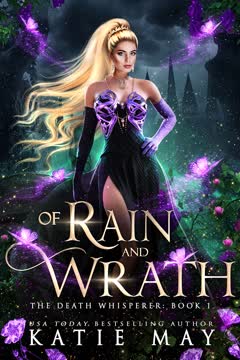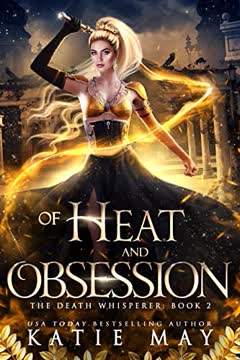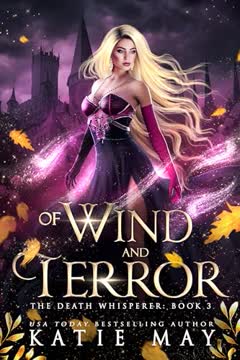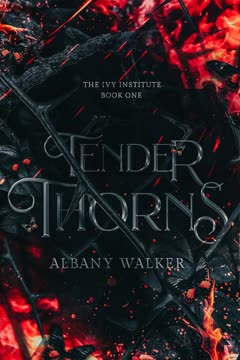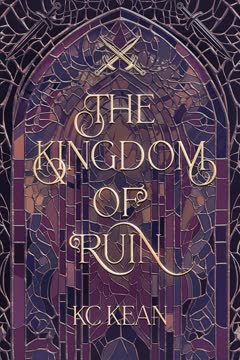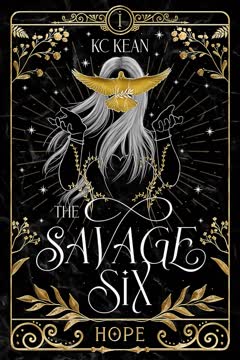Plot Summary
Born Under Death's Shadow
Kassandra, known as the Death Whisperer, is a mute fae girl with a mysterious, deadly power: she can heal any injury or illness by taking the pain and damage into her own body. Raised in captivity by the greedy Madam Herra, Kassandra is treated as a commodity, forced to heal the desperate and dying for coin. Her existence is bleak, marked by pain, isolation, and the constant threat of violence. She is haunted by rumors about her origins—some say she was touched by the Grim Reaper at birth, others that she is a vessel of darkness. Kassandra's only solace is her dream world, where she can speak and find fleeting companionship with a shadowy figure she calls Raven. Her days are a cycle of suffering, her nights a fragile escape.
Caged, Collared, and Cursed
Each day, Kassandra is paraded before crowds, collared and leashed, her gloved hands the only barrier between her and the world. Madam Herra profits from Kassandra's "miracles," but every healing leaves Kassandra broken—blind, deaf, missing limbs, or wracked with disease—until her body slowly recovers. Her voice was lost after healing a victim of the black virus, a deadly plague ravaging the fae lands. Kassandra's only possessions are her gloves, replaced regularly to prevent accidental death. She is treated as less than human, her worth measured in gold, her pain ignored. Yet, beneath the surface, resentment and a longing for freedom simmer, even as she is told to suppress all anger and hope.
The Price of Healing
Kassandra's healing is not a gift but a curse. Each act of mercy is an act of self-destruction, and the world's gratitude is fleeting. She is forced to heal the desperate, the dying, and the diseased, taking their agony into herself. The black virus, in particular, is a death sentence for most, but Kassandra's intervention comes at a terrible price—her own voice. Her silence is both literal and symbolic, a mark of her suffering and her inability to protest her fate. The world sees her as a legend, a tool, or a monster, but never as a person. Her only escape is in dreams, where she can speak and play games with Raven, a figment of her imagination or perhaps something more.
Dreams of Raven
In her dreams, Kassandra finds a gray, colorless world of her own making, where she is free to speak and play. Here, she meets Raven, a featureless but comforting presence who listens, teases, and offers her a sense of normalcy. Their conversations are a lifeline, a reminder that she is more than her pain. Raven is a mystery—sometimes broad and strong, sometimes gentle and angelic—but always a source of hope. Through their games and banter, Kassandra glimpses the possibility of happiness, even as she refuses to share the horrors of her waking life. The dream world is her sanctuary, a place untouched by Madam Herra's cruelty.
The Pacon's Pact
On her one day of relative freedom, Kassandra discovers a wounded pacon—a small, intelligent, and notoriously dangerous creature—caught in a trap. Despite the risk, she heals the pacon, taking its injuries into herself. To her shock, her deadly left hand does not kill the creature, hinting at a change in her powers. The pacon, whom she names Runt, bonds with her, refusing to leave her side. This act of kindness is a turning point, awakening a sense of agency and connection in Kassandra. But her brief taste of freedom is shattered when Madam Herra catches her, preparing to sell her to a new owner. Kassandra's fate is once again out of her hands.
Sold to the Highest Bidder
Kassandra is dressed in finery and veiled, her identity hidden as she is presented to potential buyers. Among them is Blaze, the brutal and magnetic prince of the Fall Court, accompanied by his enigmatic fiancée Serena. Blaze is skeptical of Kassandra's powers until he witnesses her heal a crippled fae, taking the pain and injury into herself. Yet, when asked to heal Blaze's own wounds, her magic fails—her powers are changing, or perhaps broken. The transaction turns violent, and in a moment of chaos, Kassandra and Blaze are drawn into a shared vision, a mystical warning from fate itself. When they return, Blaze unleashes his wrath, killing Madam Herra and her guards, and claims Kassandra as his own.
The Fall Prince's Claim
Blaze spirits Kassandra away, declaring her his property and vowing to protect her from all others—even as he makes it clear she is to warm his bed and remain hidden. Serena, his fiancée, is both amused and complicit, warning Kassandra to keep her powers secret. Kassandra is trapped in a new, gilded cage, her fate now tied to the volatile prince. Blaze is possessive, dangerous, and unpredictable, but he also shows flashes of tenderness and guilt. Kassandra is torn between fear and a strange, growing connection, haunted by the vision they shared—a prophecy of blood, death, and the need to seize control of their own destinies.
Visions and Fate's Warning
The shared vision between Kassandra and Blaze is a turning point, hinting at a deeper bond—perhaps even the rare, legendary mate connection. A mysterious, feminine voice warns them that their fates are entwined, that deceit and bloodshed await unless they seize control. Kassandra's powers continue to shift: she cannot heal Blaze at first, but later, in a moment of vulnerability, she heals his scars while he sleeps, taking the pain into herself. Each act of healing now comes with a new cost—her hearing, her voice, or worse. The prophecy looms over them, and Kassandra realizes she is not the only one marked by fate.
The Spring Court's Prisoner
At the Spring Court castle, Kassandra is kept under guard, her every move watched by Blaze's men and the formidable head guard Cayetana. Serena becomes an unlikely ally, her madness masking moments of clarity and warning. Treyton, the charming but deeply troubled prince of the Spring Court, is drawn to Kassandra, seeing in her both a prize and a kindred spirit. The court is a nest of political intrigue, with alliances shifting and the threat of war from the Day and Night Courts ever-present. Kassandra is both coveted and endangered, her secret at risk of exposure as her powers and the legends surrounding her attract dangerous attention.
The Monster Within
The black virus, once a death sentence, now creates monsters—fae twisted by disease into mindless, ravenous killers. Treyton, desperate to save his people, secretly imprisons and experiments on the infected, his guilt and self-loathing growing with each necessary cruelty. When a shopkeeper infected with the virus is brought to the castle, she transforms into a monster, attacking the court. Kassandra, in a moment of self-sacrifice, heals the woman, taking the agony and disease into herself. The act nearly destroys her, robbing her of her hearing, but it saves the court and reveals the true extent—and cost—of her power.
The Warrior's Whip
With the help of Cayetana and the ancient armorer Father Barthomel, Kassandra is given the chance to choose a weapon. Instead of a sword or bow, she is claimed by a harbara—a rare, magical weapon that takes the form of a whip and a bracelet. The harbara is alive, bonded to her, and its choice is both a blessing and a curse. The whip is a symbol of her past suffering, but also of her potential for self-defense and agency. Under Cayetana's tutelage, Kassandra begins to train, determined to become more than a victim. The harbara's power is a mystery, its true potential yet to be revealed.
The Princes' War
Blaze and Treyton's rivalry intensifies, both personally and politically. Each wants Kassandra for his own reasons—Blaze for the mate bond and his own possessive need, Treyton for power, validation, and perhaps something deeper. Their conflict mirrors the larger tensions between their courts, as the Day and Night Courts threaten invasion and the Spring Court's weakness becomes apparent. Calan, the cold and calculating prince of the Winter Court, arrives, bringing news of his brother's death and his own vendetta against the Death Whisperer. The princes' war is not just for kingdoms, but for Kassandra's fate and the future of the realm.
The Black Virus Unleashed
The black virus erupts within the castle, transforming the infected into monsters. Kassandra's act of mercy in healing the shopkeeper exposes her secret to the court, and Treyton is forced to kill to protect her identity. The cost of her power grows—each healing takes something from her, and the world's gratitude is fleeting. The court is thrown into chaos, alliances fray, and the threat of exposure looms. Kassandra is both savior and scapegoat, her existence a danger to herself and those around her. The true horror of the black virus is revealed—not just in death, but in what it leaves behind.
The Cost of Mercy
Kassandra's healing is an act of self-sacrifice, each miracle a wound that never fully heals. She loses her voice, her hearing, and pieces of herself with every act of mercy. The world demands her power but offers no compassion in return. Her relationships with Blaze and Treyton are fraught with desire, guilt, and the shadow of violence. Both men are monsters in their own ways—Blaze in his brutality, Treyton in his cold calculation and hidden guilt. Kassandra is caught between them, her agency slipping away even as she fights to reclaim it. The cost of mercy is steep, and the world is eager to make her pay.
The Death Whisperer Revealed
Kassandra's identity as the Death Whisperer is revealed to those who would use or destroy her. The legend becomes reality, and the world's hunger for her power grows. Enemies close in—assassins, spies, and those who see her as a tool or a threat. The princes' possessiveness becomes a double-edged sword, offering protection but also deepening her captivity. Kassandra's only hope lies in her own strength, the loyalty of unlikely allies, and the mysterious bond she shares with Blaze—and perhaps with Treyton. The prophecy of fate hangs over them all, promising blood, betrayal, and the need to seize control of their own destinies.
Blood, Betrayal, and Bondage
Violence erupts within the castle as the black virus claims more victims and the princes' rivalry turns deadly. Treyton, forced to kill to protect Kassandra's secret, is consumed by guilt and self-loathing. Blaze's possessiveness becomes both a shield and a shackle. Kassandra is caught in a web of blood and betrayal, her every act of mercy bringing new dangers. The court is a prison, the princes her jailers, and the world a hostile place eager to consume her. Yet, within the darkness, Kassandra begins to find the strength to fight back, to claim her own fate, and to demand more than survival.
Reborn in Death's Image
Kassandra's journey is one of suffering, sacrifice, and the relentless pursuit of agency. Born under the shadow of death, she is remade by pain and loss, her power both a curse and a weapon. The world sees her as a legend, a tool, or a monster, but she is determined to become more. The prophecy of fate warns of bloodshed and sorrow, but also of the possibility of change. As the princes' war threatens to consume the realm, Kassandra stands at the center—a beacon of hope, a harbinger of death, and a woman determined to seize her own destiny, no matter the cost.
Characters
Kassandra
Kassandra is the mute, tormented protagonist whose power to heal by absorbing others' pain has made her both a legend and a commodity. Raised in captivity, she is treated as less than human, her worth measured only by her ability to suffer for others. Psychologically, Kassandra is marked by trauma, isolation, and a deep longing for agency and connection. Her silence is both a literal wound and a symbol of her voicelessness in a world that exploits her. Despite her suffering, she possesses a fierce will to survive and a capacity for compassion that endures. Her relationships—with Raven in her dreams, with Runt the pacon, and with the princes—are fraught with longing, fear, and the desperate hope for freedom. Over the course of the story, Kassandra evolves from a passive victim to a woman determined to seize her own fate, even as the cost of her power grows ever steeper.
Blaze
Blaze, the prince of the Fall Court, is a study in contradictions: brutal, possessive, and feared, yet capable of surprising tenderness and guilt. He claims Kassandra as his own, both to protect her and to possess her, his motives tangled in desire, prophecy, and the rare possibility of a mate bond. Blaze is haunted by his own violence and the legacy of blood he carries, struggling to reconcile his need for control with the vulnerability Kassandra awakens in him. His relationship with Kassandra is fraught with power imbalances, jealousy, and flashes of genuine connection. Blaze's development is marked by his growing awareness of the cost of his actions and the realization that true strength may lie in mercy and trust, not just dominance.
Treyton
Treyton, prince of the Spring Court, is outwardly charming, diplomatic, and beloved by his people, but beneath the surface lies a well of guilt, self-loathing, and ruthless pragmatism. He is driven by the need to protect his kingdom, even at the cost of his own soul, and his secret experiments on the infected reveal a capacity for cruelty masked by good intentions. Treyton's interest in Kassandra is complex—part desire, part envy, part recognition of a kindred spirit. His psychological struggle is between the persona he presents to the world and the darkness he cannot escape. As the story progresses, Treyton's mask slips, revealing the depth of his pain and the lengths he will go to for power, validation, and perhaps redemption.
Serena
Serena, Blaze's fiancée and Treyton's sister, is a whimsical, unpredictable presence whose madness conceals moments of startling clarity and prophecy. She is both comic relief and a harbinger of doom, her ramblings often containing hidden truths. Serena's relationship with Kassandra is one of unlikely camaraderie, and her warnings about the princes and the dangers ahead are both cryptic and sincere. Psychologically, Serena is fragmented, her mind a battleground between fantasy and reality, but her loyalty and insight make her a valuable, if unpredictable, ally.
Cayetana
Cayetana, the head guard of the Spring Court, is a formidable warrior and a rare source of genuine support for Kassandra. She is pragmatic, skilled, and unafraid to challenge the princes' authority when necessary. Her relationship with Serena is rooted in shared history and loyalty, and her mentorship of Kassandra is marked by tough love and encouragement. Cayetana's psychological strength lies in her sense of duty and her refusal to be cowed by power, making her a stabilizing force amid the court's chaos.
Calan
Calan, prince of the Winter Court, is emotionally detached, analytical, and driven by a relentless need for order and control. His inability to feel emotions as others do makes him both a brilliant strategist and a potential threat. The death of his brother, which he blames on the Death Whisperer's failure, awakens a rare and dangerous anger in him, setting him on a path of vengeance. Calan's psychological complexity lies in his struggle to understand and manage his own feelings, and his presence adds a new layer of danger to Kassandra's already precarious situation.
Madam Herra
Madam Herra is the embodiment of avarice and cruelty, treating Kassandra as a tool for profit and enforcing obedience through violence and deprivation. Her psychological makeup is defined by a lack of empathy, a hunger for power, and a willingness to inflict suffering for personal gain. Her relationship with Kassandra is one of domination and exploitation, and her eventual death at Kassandra's hand is both a moment of liberation and a source of lingering trauma.
Runt
Runt, the pacon Kassandra saves, is more than a pet—he is a symbol of her capacity for compassion and her longing for connection. Intelligent, protective, and fiercely loyal, Runt becomes Kassandra's companion and a rare source of unconditional affection. His survival after Kassandra's touch hints at changes in her power and the possibility of hope amid despair. Psychologically, Runt represents the part of Kassandra that refuses to give up on kindness, even in a world that punishes it.
Raven
Raven, the mysterious figure in Kassandra's dreams, is both a product of her subconscious and a possible supernatural presence. He offers her comfort, conversation, and a sense of normalcy, serving as a counterpoint to her isolation and pain. Raven's shifting form and enigmatic nature make him a symbol of possibility and the unknown, and his role in the prophecy hints at a deeper connection to Kassandra's fate.
Aleksander (The Shadow)
Aleksander, known as the Shadow, is a blind assassin hired to find the Death Whisperer. He is ruthless, witty, and unpredictable, his lack of sight compensated by heightened other senses and a penchant for violence. Psychologically, Aleksander is driven by self-love, a twisted sense of humor, and a willingness to do whatever it takes to complete his mission. His presence is a constant threat, a reminder that Kassandra's legend has made her a target for forces beyond the courts.
Plot Devices
Reverse Harem and Power Dynamics
The narrative employs the reverse harem trope, with Kassandra at the center of a web of powerful, dangerous men—each with their own motives, desires, and psychological wounds. The shifting power dynamics between Kassandra, Blaze, Treyton, and Calan drive much of the tension, as each prince seeks to claim, protect, or use her. The story interrogates themes of agency, consent, and the cost of being desired, with Kassandra's struggle for autonomy at the heart of the plot.
Pain-for-Healing Magic System
Kassandra's magic is a literalization of the cost of compassion—every act of healing is an act of self-destruction, and the world's gratitude is fleeting. The magic system is both a plot engine and a metaphor for trauma, voicelessness, and the burden of being needed but never cared for. The escalating cost of her power—her voice, her hearing, her very self—raises the stakes and underscores the story's central question: what is the price of mercy, and who pays it?
Prophecy and Fate
The shared visions between Kassandra and the princes introduce a prophecy that frames the narrative: fate warns of blood, betrayal, and the need to seize control of one's destiny. The prophecy is both a source of hope and a threat, challenging the characters to break free from the roles assigned to them by legend, power, and trauma. The tension between fate and free will is a recurring motif, with Kassandra's journey representing the possibility of change amid seemingly inescapable cycles.
Court Intrigue and Political Tension
The story is set against a backdrop of political upheaval, with the Day and Night Courts threatening invasion and the seasonal courts scrambling for survival. Alliances are forged and broken, secrets are weaponized, and the personal becomes political as Kassandra's fate becomes entwined with the future of the realm. The court intrigue amplifies the stakes, making every relationship a potential source of danger or salvation.
The Black Virus as Horror and Metaphor
The black virus is both a literal threat and a metaphor for the uncontrollable forces that destroy lives and societies. Its ability to transform fae into monsters externalizes the story's themes of trauma, loss, and the fear of what lies within. The virus's spread and the court's desperate, often cruel responses mirror real-world anxieties about disease, contagion, and the scapegoating of the vulnerable.
Symbolism of the Harbara
The harbara, a rare magical weapon that bonds with Kassandra, is both a symbol of her past suffering (its whip form echoes her abuse) and her potential for self-defense and agency. Its living nature and multiple forms suggest the possibility of transformation and adaptation, mirroring Kassandra's own journey from victim to warrior.
Analysis
Of Rain and Wrath is a dark, emotionally charged fantasy that uses the conventions of reverse harem romance and court intrigue to explore deep psychological and social themes. At its core, the novel is a meditation on the cost of mercy and the struggle for agency in a world that commodifies suffering. Kassandra's journey is both literal and symbolic: she is a healer who is never healed, a savior who is never saved, and a woman whose silence and pain are both her prison and her power. The princes who vie for her are not saviors but reflections of the world's hunger for power, validation, and control. The story interrogates the dynamics of desire, trauma, and the ways in which the vulnerable are exploited by those in power. Yet, amid the darkness, there is hope: in Kassandra's growing sense of self, in the loyalty of unlikely allies, and in the possibility of rewriting fate. The novel asks what it means to be seen, to be valued, and to fight for one's own story in a world eager to write it for you. Its lessons are both timely and timeless: compassion is costly, agency is hard-won, and the only way to break the cycle of pain is to seize the pen and become the author of your own fate.
Last updated:
Review Summary
Of Rain and Wrath received mixed reviews, with readers praising the unique premise and world-building but criticizing the slow pacing and underdeveloped characters. Many enjoyed the protagonist Kassandra's strength and disability representation but found the male love interests problematic. The book's slow-burn romance and cliffhanger ending divided opinions. Some readers appreciated the complex fantasy elements, while others felt confused by the plot. Overall, the novel shows potential for the series but left many readers uncertain about continuing.
The Death Whisperer Series Series
Similar Books
Download PDF
Download EPUB
.epub digital book format is ideal for reading ebooks on phones, tablets, and e-readers.
